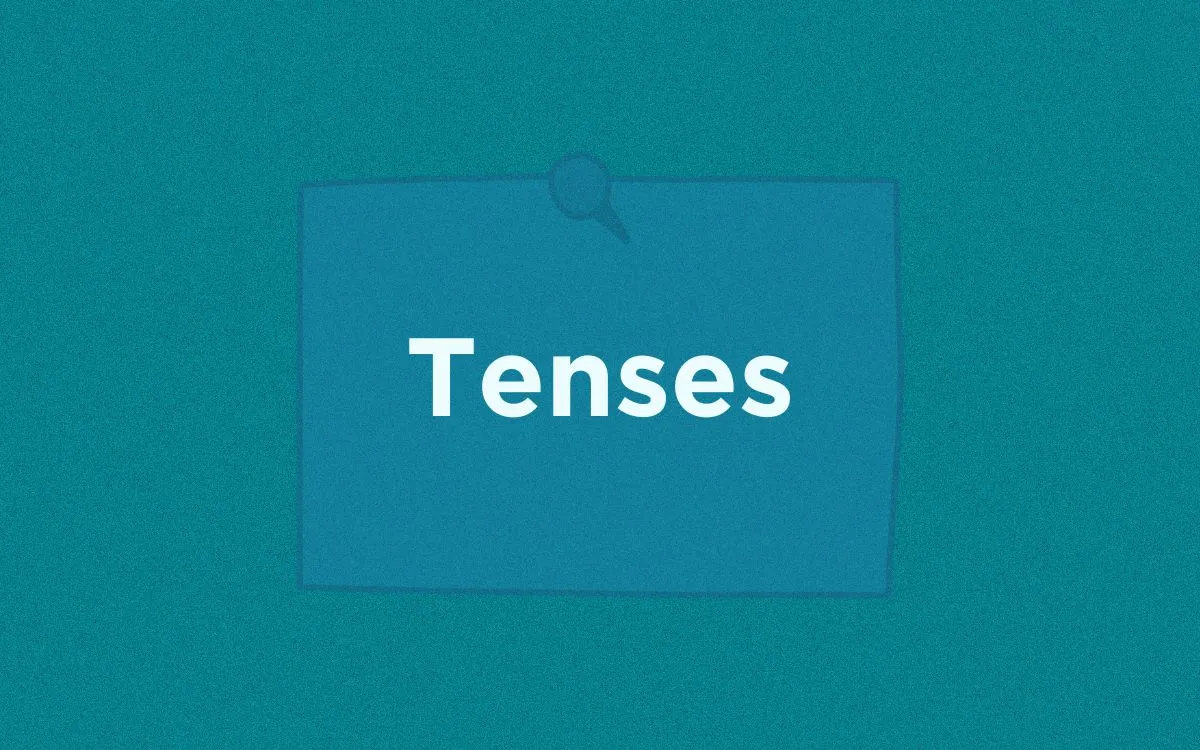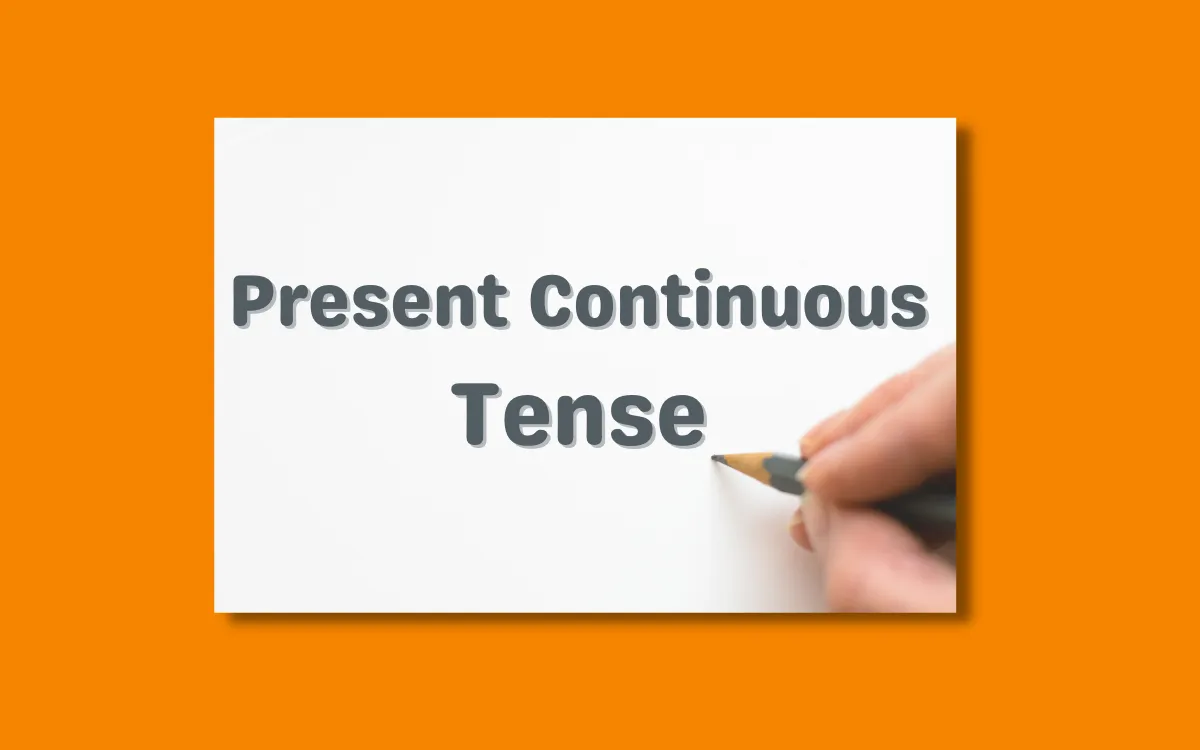
Tenses in English. English tenses in a table. Structures, uses and examples of English tenses. Which are the 12 tenses in English?
The use of tenses in the English language is a fundamental element for effective and accurate communication. Different tenses allow us to clearly express when events occur, their continuity, and their relationships when speaking and writing. On this page, we will examine each of the English tenses.
The subjects we will learn include present simple, present continuous, past simple, past continuous, future simple and many other time structures. You will also see how tenses are used in negative and interrogative sentences. However, the usages of the tenses are not mentioned in detail. You can access detailed explanations from the link below.
Tenses - Usage and Explanation
Table of English Tenses
| Tenses | Examples |
| Present Continuous | I am playing tennis now. |
| Simple Present | I play tennis every day. |
| Simple Past | I played tennis yesterday. |
| Past Continuous | I was playing tennis. |
| Present Perfect | I have played tennis for years. |
| Present Perfect Continuous | I have been playing tennis for hours. |
| Past Perfect | I had played tennis. |
| Past Perfect Continuous | I had been playing tennis. |
| Simple Future | I will play tennis. |
| Goning to | I am going to play tennis tomorrow. |
| Future Continuous | I will be playing tennis. |
| Future Perfect | I will have played tennis. |
| Future Perfect Continuous | I will have been playing tennis for a year. |
Present Continuous Tense
The Present Continuous Tense is generally used to talk about actions that have started to happen and have not yet been completed. It refers to events that continue to occur at or around the moment of speaking.
| Affirmative | I + am + Ving |
| He/She/It + is + Ving | |
| You/We/They + are + Ving | |
| Negative | I + am + not + Ving |
| He/She/It + is + not + Ving | |
| You/We/They + are + not + Ving | |
| Question | Am + I + Ving |
| Is + He/She/It + Ving | |
| Are + You/We/They + Ving |
・He is sleeping now.
・I'm not working today.
・Are you still waiting for me?
Simple Present Tense
The Simple Present Tense is usually used to talk about regular actions or general truths.
| Affirmative | I/You/We/They + V1 |
| He/She/It + V1 + -s takısı | |
| Negative | I/You/We/They + do + not + V1 |
| He/She/It + does + not + V1 | |
| Question | Do + I/You/We/They + V1 |
| Does + He/She/It + V1 |
・I always get up early.
・He likes playing chess.
・John doesn't drink tea every day.
・Do you play football twice a week.
Simple Past Tense
The Simple Past Tense is used to talk about events or actions that happened and finished in the past.
| Affirmative | I/You/He/She/It/We/They + V2 + nesne |
| Negative | I/You/He/She/It/We/They + did + not + V1 + nesne |
| Question | Did + I/You/He/She/It/We/They + V1 + nesne |
・I saw her yesterday.
・He didn't come to the party.
・Did you visit the museum last week.
Past Continuous Tense
The Past Continuous Tense is usually used to talk about events that were happening at a certain time in the past. It is not a matter of when the event in the past started and ended, but that it continued to happen in the mentioned time period.
| Affirmative | I/He/She/It + was + Ving |
| You/We/They + were + Ving |
|
| Negative | I/He/She/It + was + not + Ving |
| You/We/They + were + not + Ving | |
| Question | Was + I/He/She/It + Ving |
| Were + You/We/They + Ving |
・It was raining yesterday morning.
・In 2015 they were not living in Germany.
・Were they talking on the phone all night?
Present Perfect Tense
The Present Perfect Tense is used for situations that started in the past and are connected to the moment of speaking.
| Affirmative | I/You/We/They + have + V3 |
| He/She/It + has + V3 | |
| Negative | I/You/We/They + have + not + V3 |
| He/She/It + has + not + V3 | |
| Question | Have + I/You/We/They + V3 |
| Has + He/She/It + V3 |
・I have lived in China for five years.
・It has not rained here for weeks.
・Have you ever been to France?
Present Perfect Continuous Tense
The Present Perfect Continuous Tense is used to indicate that something started in the past and continues until the moment of speaking.
| Affirmative | I/You/We/They + have + been + Ving |
| He/She/It + has + been + Ving | |
| Negative | I/You/We/They + have + not + been + Ving |
| He/She/It + has + not + been + Ving | |
| Question | Have + I/You/We/They + been + Ving |
| Has + He/She/It + been + Ving |
・I have been waiting for two hours.
・He hasn't been working since morning.
・How long has it been raining?
Past Perfect Tense
The Past Perfect Tense is used to indicate that an event that happened in the past occurred before another event or time period in the past.
| Affirmative | I/You/We/They/He/She/It + had + V3 |
| Negative | I/You/We/They/He/She/It + had + not + V3 |
| Question | Had + I/You/We/They/He/She/It + V3 |
・He had moved to Germany before 2010.
・They had not seen that movie before last night.
・Had you eaten breakfast when I called you?
Past Perfect Continuous Tense
The Past Perfect Continuous tense is another English tense we use when talking about the past. As a general rule, it is used to indicate an event that started in the past, continued for a while, and finished before another event that happened in the past.
| Affirmative | I/You/He/She/It/We/They + had + been + Ving |
| Negative | I/You/He/She/It/We/They + had + not + been + Ving |
| Question | Had + I/You/He/She/It/We/They + been + Ving |
・I was tired because I had been standing for a long time.
・I had not been waiting since 8 o'clock when he arrived.
・Had he been living in Germany for a long time?
Simple Future Tense 'Will'
The Simple Future Tense is used to express an event that we think will happen in the future or a truth about the future.
| Affirmative | I/You/He/She/It/We/They + will + V1 |
| Negative | I/You/He/She/It/We/They + will + not + V1 |
| Question | Will + I/You/He/She/It/We/They + V1 |
・He'll be a father soon.
・I will be probably late tonight.
Be Going To
Be going to is usually used when talking about a decision, intention, or plan about the future.
| Affirmative | I + am + going to + V1 |
| He/She/It + is + going to + V1 | |
| You/We/They + are + going to + V1 | |
| Negative | I + am + not + going to + V1 |
| He/She/It + is + not + going to + V1 | |
| You/We/They + are + not + going to + V1 | |
| Question | Am + going to + I + V1 |
| Is + going to + He/She/It + V1 | |
| Are + going to + You/We/They + V1 |
・I'm going to buy a new car.
・What are you going to do this weekend?
Future Continuous Tense
The Future Continuous Tense is used to talk about events that we think will continue to happen in the future. It is used less frequently than 'will' and 'going to'. It is preferred to emphasize that the future event will continue for some time.
| Affirmative | I/You/He/She/It/We/They + will + be + Ving |
| Negative | I/You/He/She/It/We/They + will + not + be + Ving |
| Question | Will + I/You/He/She/It/We/They + be + Ving |
・We will be having dinner when you arrive.
・Will you be attending the meeting tomorrow?
Future Perfect Tense
The Future Perfect Tense is used to talk about events that we think will be completed by a certain point in time in the future.
| Affirmative | I/You/He/She/It/We/They + will + have + V3 |
| Negative | I/You/He/She/It/We/They + will + not + have + V3 |
| Question | Will + I/You/He/She/It/We/They + have + V3 |
・By next week, I will not have finished the report.
Future Perfect Continuous Tense
The Future Perfect Continuous Tense is used to describe actions that will continue until a point in time in the future.
| Affirmative | I/You/He/She/It/We/They + will + have + been + Ving |
| Negative | I/You/He/She/It/We/They + will + not + have + been + Ving |
| Question | Will + I/You/He/She/It/We/They + have + been + Ving |
・By next year, she will have been studying French for five years.
・We will have been expecting for nine months when the baby is born.


